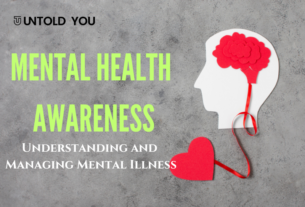Understanding Mindfulness
Mindfulness, a practice rooted in ancient Buddhist traditions, has gained significant traction in modern times for its profound impact on mental and emotional well-being. At its core, mindfulness involves paying attention to the present moment with a non-judgmental attitude. It’s about being fully aware of your thoughts, feelings, and sensations without getting caught up in them.
The Benefits of Mindfulness
The benefits of mindfulness are far-reaching and scientifically validated. Regular mindfulness practice can lead to:
- Reduced Stress and Anxiety: By anchoring oneself in the present moment, mindfulness helps to alleviate the constant worry and stress that often plagues our minds.
- Improved Focus and Concentration: When our minds are cluttered with distractions, it becomes difficult to concentrate. Mindfulness helps to train the mind to stay focused on the task at hand.
- Enhanced Emotional Regulation: Mindfulness allows us to observe our emotions without being overwhelmed by them. This enables us to respond to situations with greater clarity and composure.
- Increased Self-Awareness: By paying attention to our thoughts and feelings, we gain a deeper understanding of ourselves and our patterns of behavior.
- Improved Physical Health: Studies have shown that mindfulness can positively impact physical health by reducing symptoms of chronic pain, lowering blood pressure, and boosting the immune system.
Practical Tips for Incorporating Mindfulness into Daily Life
Mindfulness doesn’t require elaborate practices or retreats. Here are some simple tips to integrate mindfulness into your daily routine:
- Mindful Breathing: Take a few moments each day to focus on your breath. Inhale slowly and deeply, and exhale slowly and fully. Pay attention to the sensation of the breath entering and leaving your body.
- Mindful Eating: Instead of rushing through meals, savor each bite. Pay attention to the taste, texture, and smell of your food.
- Mindful Walking: As you walk, focus on the sensation of your feet touching the ground. Notice the rhythm of your steps and the surrounding environment.
- Mindful Listening: When engaging in conversations, give your full attention to the speaker. Avoid interrupting and truly listen to what they have to say.
- Mindful Meditation: Dedicate some time each day to formal meditation practice. Sit quietly, focusing on your breath or a specific mantra.
Overcoming Challenges and Staying Consistent
While mindfulness offers numerous benefits, it’s not always easy to maintain a consistent practice. Here are some tips to overcome common challenges:
- Be Patient and Kind to Yourself: Remember that mindfulness is a journey, not a destination. It’s okay to have off days.
- Start Small: Begin with short mindfulness practices and gradually increase the duration as you become more comfortable.
- Find a Supportive Community: Join a mindfulness group or find a meditation buddy to share your experiences and stay motivated.
- Use Mindfulness Apps: There are many mindfulness apps available that offer guided meditations and other helpful tools.
- Incorporate Mindfulness into Daily Activities: Integrate mindfulness into your daily routines, such as brushing your teeth or washing dishes.
The Transformative Power of Mindfulness
By consistently practicing mindfulness, we can cultivate a deeper sense of inner peace, well-being, and resilience. It’s a powerful tool that can help us navigate life’s challenges with greater ease and clarity. So, take the first step today and embark on your mindfulness journey.




